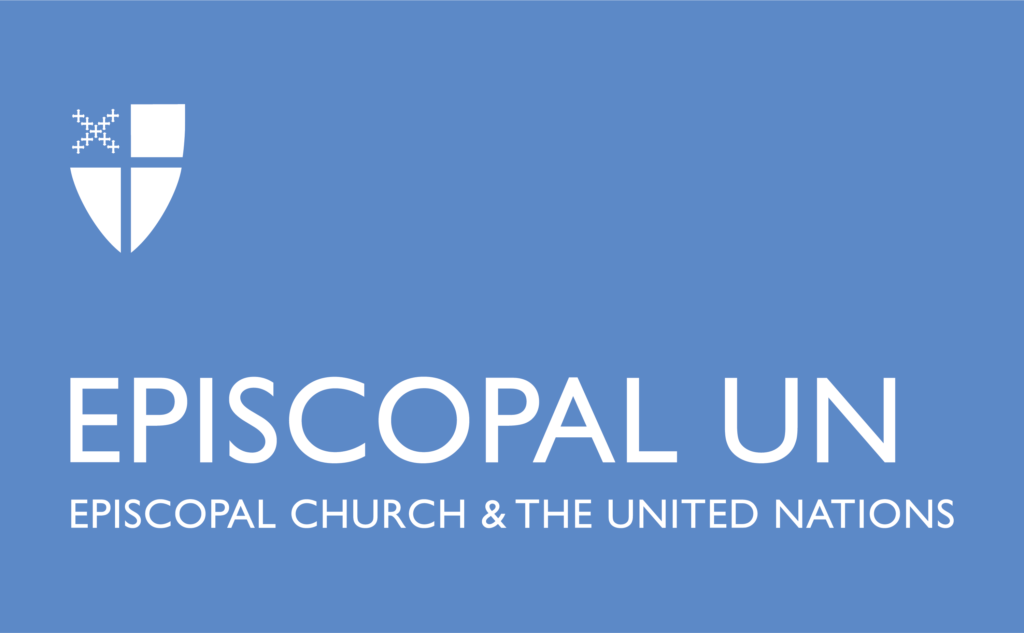The ‘Forgotten’ Violence Against Women
By: Nancy Kaymar Stafford, Diocese of Rhode Island (Province I) / Nancy Kaymar Stafford, Diócesis de Rhode Island (Provincia I)
The Beijing Platform for Action states that “Violence against women is an obstacle to the achievement of the objectives of equality, development and peace.” When people talk about violence against women, they generally think about domestic violence or sexual assault, but there are so many other types of violence against women. One of the most insidious obstacles to women’s achievement of equality, development and peace is the violence perpetrated against them from traditional cultural practices and honor crimes. The examples I cite below are not meant to be exhaustive.[1] Nor are they meant to be inclusive of all the types of violence that are perpetrated against woman. Violence against women can be physical, sexual, or psychological. It can be real or perceived and include threats or coercion. Moreover, there is situational violence against women, such as during armed conflict, but you will have to wait for next week’s blog for that discussion.
Traditional customary practices represent community values and beliefs and are generally handed down over generations. They are often seen as the moral code of a community. While some traditions are a benefit to societal members, often these practices are harmful to women. The following are examples of such practices. (i) Widow inheritance – where a woman is required upon her husband’s death to marry his brother, or she will be expelled from the clan with nothing, not even her children as they “belong” to the clan. (ii) Female genital mutilation (FGM), or female circumcision is performed, usually on adolescent girls, by the removal of all or part of her genital organs. It is generally believed that this will inhibit her sexuality. (iii) Child marriage, which marries girls under 18, usually pre-pubescent, to adult men, sometimes many years older than the girl. The primary reason for this is to ensure the girl’s virginity, which increases the bride price paid for her. (iv) Bride price is paid to the bride’s family by the groom’s family. The amount is determined by the two families. It commoditizes the woman and makes her the property of the man and his family. (v) Female infanticide or the killing of female babies because of preference for male children. If they are not killed, they are often neglected and seen as a liability for the family.
Honor crimes derive from the patriarchal notion that a woman’s chastity or virtue is tied to her family’s honor. Men are often considered under the law to be masters over their wives (and children), free to discipline and demand obedience from them because of the man’s status as the head of the household. As such, if there is the mere hint of impropriety on the part of a female member of the household, the family – and particularly its male head – is dishonored. The family must then react to rectify the situation and restore the family’s reputation. The following are some examples of honor crimes. (i) Women are murdered if they are seen alone with a man that is not a member of her family. (ii) Women are required to throw themselves on their husband’s funeral pyre – self-immolation. (iii) Trokosi, in Ghana, which is the enslavement of young girls to a fetish shrine to atone for offenses committed by a member of the girl’s family, when they become of age, they often become sex slaves. (iv) Ngozi, in Zimbabwe, under which a girl is given to another family as compensation for the death of a man caused by a member of the girl’s family. Basically, the girl is given over to the family to produce for them another heir.
These practices cannot be permitted to continue. We have to break the cycle of women feeling, and being considered, inferior. I interviewed a woman for an article I was writing on marital rape. As we were speaking about that and violence against women, she said “If my husband doesn’t beat me, how will I know he loves me?” This is the type of mindset that we need to re-set! It is a matter of human dignity. As it is written in Colossians 4:10-11 “You are living a brand-new kind of life that is continually learning more and more of what is right, and trying constantly to be more and more like Christ who created this new life within you. In this new life one’s nationality or race or education or social position is unimportant; such things mean nothing. Whether a person has Christ is what matters, and he is equally available to all.” Including women!
[1] These examples come from the author’s personal experience working with women and from the chapter she authored, “Ending Honour Crimes in Sub Saharan Africa: Looking at a long hard death” in M. Idriss, T. Abbas and R. Abbinnett (Eds.) Honour, Violence, Women and Islam.
______________________

About the author: Nancy is an attorney licensed to practice in New York State. She spent several years practicing as a corporate attorney before turning her focus to women’s rights as a supervising attorney for Georgetown University Law Center’s International Women’s Human Rights Clinic and for Emory Law School’s Feminism and Legal Theory Project. Ms. Stafford has worked extensively on women’s rights, particularly as they relate to the African continent, having published several articles and book chapters on the same. She is currently Vice Chair of the International Law Section of the American Bar Association (ABA) and Chair Elect of the International Law Section and Member of the Advisory Council of the ABA’s Center for Human Rights.
La violencia ‘olvidada’ contra las mujeres
La Plataforma de Acción de Beijing afirma que “La violencia contra la mujer es un obstáculo para el logro de los objetivos de igualdad, desarrollo y paz”. Cuando la gente habla de violencia contra la mujer, generalmente piensa en violencia doméstica o agresión sexual, pero hay muchos otros tipos de violencia contra la mujer. Uno de los obstáculos más insidiosos para el logro de la igualdad, el desarrollo y la paz de las mujeres es la violencia perpetrada contra ellas por las prácticas culturales tradicionales y los crímenes de honor. Los ejemplos que cito a continuación no pretenden ser exhaustivos. [1] Tampoco pretenden incluir todos los tipos de violencia que se perpetran contra la mujer. La violencia contra la mujer puede ser física, sexual o psicológica. Puede ser real o percibido e incluir amenazas o coacción. Además, existe violencia situacional contra las mujeres, como durante un conflicto armado, pero tendrá que esperar al blog de la próxima semana para esa discusión.
Las prácticas consuetudinarias tradicionales representan valores y creencias de la comunidad y generalmente se transmiten de generación en generación. A menudo se los considera el código moral de una comunidad. Si bien algunas tradiciones son un beneficio para los miembros de la sociedad, a menudo estas prácticas son perjudiciales para las mujeres. Los siguientes son ejemplos de tales prácticas. (i) Herencia de la viuda: cuando a la muerte de su esposo se requiere que una mujer se case con su hermano, o será expulsada del clan sin nada, ni siquiera sus hijos, ya que “pertenecen” al clan. (ii) La mutilación genital femenina (MGF), o la circuncisión femenina, se realiza, generalmente en niñas adolescentes, mediante la extirpación de todos o parte de sus órganos genitales. Generalmente se cree que esto inhibirá su sexualidad. (iii) Matrimonio infantil, que casa a niñas menores de 18 años, generalmente prepúberes, con hombres adultos, a veces muchos años mayores que la niña. La razón principal de esto es asegurar la virginidad de la niña, lo que aumenta el precio de la novia que paga por ella. iv) El precio de la novia lo paga la familia del novio a la familia de la novia. La cantidad la determinan las dos familias. Mercantiliza a la mujer y la convierte en propiedad del hombre y su familia. (v) El infanticidio femenino o la matanza de bebés por preferencia por los niños varones. Si no los matan, a menudo se los descuida y se los considera un lastre para la familia.
Los delitos de honor se derivan de la noción patriarcal de que la castidad o la virtud de una mujer están ligadas al honor de su familia. A menudo, la ley considera que los hombres son amos de sus esposas (e hijos), libres de disciplinarlos y exigirles obediencia debido a la condición del hombre como cabeza de familia. Como tal, si hay un mero indicio de incorrección por parte de una mujer miembro del hogar, la familia, y en particular su cabeza masculina, es deshonrada. Luego, la familia debe reaccionar para rectificar la situación y restaurar la reputación de la familia. Los siguientes son algunos ejemplos de crímenes de honor. (i) Las mujeres son asesinadas si se las ve a solas con un hombre que no es miembro de su familia. ii) Las mujeres deben arrojarse a la pira funeraria de su marido: autoinmolación. iii) Trokosi, en Ghana, que es la esclavitud de niñas en un santuario fetichista para expiar los delitos cometidos por un miembro de la familia de la niña, cuando llegan a la mayoría de edad, a menudo se convierten en esclavas sexuales. iv) Ngozi, en Zimbabwe, en virtud del cual una niña es entregada a otra familia como compensación por la muerte de un hombre causada por un miembro de la familia de la niña. Básicamente, la niña es entregada a la familia para que les produzca otro heredero.
No se puede permitir que estas prácticas continúen. Tenemos que romper el ciclo de las mujeres que se sienten y son consideradas inferiores. Entrevisté a una mujer para un artículo que estaba escribiendo sobre la violación marital. Mientras hablábamos de eso y de la violencia contra las mujeres, dijo: “Si mi esposo no me pega, ¿cómo sabré que me ama?” ¡Este es el tipo de mentalidad que debemos restablecer! Es una cuestión de dignidad humana. Como está escrito en Colosenses 4: 10-11 “Estás viviendo una nueva clase de vida que continuamente está aprendiendo más y más de lo que es correcto, y tratando constantemente de ser cada vez más como Cristo, quien creó esta nueva vida en tu interior. tú. En esta nueva vida, la nacionalidad, la raza, la educación o la posición social de uno no son importantes; esas cosas no significan nada. Si una persona tiene a Cristo es lo que importa, y él está igualmente disponible para todos “. ¡Incluidas las mujeres!
[1] Estos ejemplos provienen de la experiencia personal de la autora trabajando con mujeres y del capítulo que escribió, “Poner fin a los crímenes de honor en el África subsahariana: mirar una muerte larga y dura” en M. Idriss, T. Abbas y R. Abbinnett ( Eds.) Honor, Violencia, Mujeres e Islam.
___________________

Acerca del autor: Nancy es una abogada con licencia para ejercer en el estado de Nueva York. Pasó varios años ejerciendo como abogada corporativa antes de centrarse en los derechos de la mujer como abogada supervisora de la Clínica Internacional de Derechos Humanos de la Mujer del Centro de Derecho de la Universidad de Georgetown y del Proyecto de Teoría Jurídica y Feminismo de la Facultad de Derecho de Emory. La Sra. Stafford ha trabajado extensamente sobre los derechos de la mujer, particularmente en lo que se refiere al continente africano, y ha publicado varios artículos y capítulos de libros sobre los mismos. Actualmente es Vicepresidenta de la Sección de Derecho Internacional de la American Bar Association (ABA) y Presidente electo de la Sección de Derecho Internacional y Miembro del Consejo Asesor del Centro de Derechos Humanos de la ABA.


